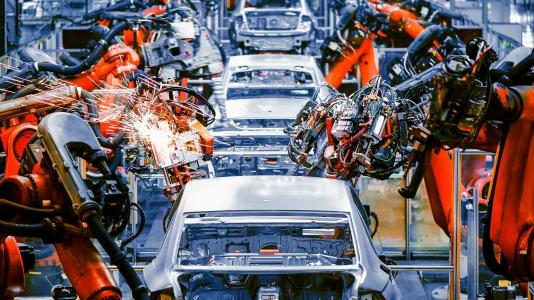Bridging the lithium battery supply chain gap — a new alliance in the U.S.

As widespread electrification drives demand for lithium-based batteries to power electric vehicles and stationary storage, the domestic battery supply chain must expand.
To build bridges across the battery ecosystem, the U.S. Department of Energy’s (DOE) Argonne National Laboratory announces the creation of Li-Bridge, a new public-private alliance committed to accelerating the development of a robust and secure domestic supply chain for lithium-based batteries. Li-Bridge is focused on bringing key stakeholders together to improve the lithium battery supply chain and marks the first collaboration of its kind in the U.S. battery industry.
“Achieving the lofty targets of the National Blueprint for Lithium Batteries will require alignment between the federal government, private industry and research institutions… The Li-Bridge alliance will bring these pieces into a cohesive whole.” — Venkat Srinivasan, ACCESS director and deputy director, JCESR
Recognized as a global leader in energy storage research and development, Argonne will serve as the facilitator between private industry and the Federal Consortium for Advanced Batteries, which recently released a National Blueprint for Lithium Batteries, 2021 - 2030.
Putting the U.S. on a path to long-term competitiveness in the global battery value chain, the blueprint outlines five critical goals to creating a domestic lithium-battery supply chain that generates equitable, clean-energy jobs in the U.S., while mitigating climate change.
Argonne which has overcome myriad national energy storage challenges through R&D and amassed a portfolio of more than 250 patented battery advances, will work with DOE national labs across the country to meet national blueprint goals. In addition, private industry participation will be facilitated through an alliance with three U.S.-based convenor organizations: NAATBatt International, New York Battery and Energy Storage Technology Consortium (NY-BEST) and New Energy Nexus. These organizations represent more than 600 industry stakeholders across the high-capacity battery ecosystem.
“The new Li-Bridge alliance announced today is a major step forward in developing and sustaining a robust, domestic supply chain for batteries, which will be critical to vehicle electrification,” said Michael Berube, deputy assistant secretary for sustainable transportation at DOE. “This coordination between public and private entities across the nation is paramount to achieving our vision of establishing a battery materials and technology supply chain that supports long-term U.S. economic competitiveness.”
“Achieving the lofty targets of the National Blueprint for Lithium Batteries will require alignment between the federal government, private industry and research institutions working hand-in-hand to develop the batteries of the future, mass produce them, establish a resilient supply chain, and do this all at record speed,” said Venkat Srinivasan, director of the Argonne Collaborative Center for Energy Storage Science (ACCESS) and deputy director of the Joint Center for Energy Storage Research (JCESR).
“While the U.S. has all the pieces to achieve these goals, they are fragmented. The Li-Bridge alliance will bring these pieces into a cohesive whole,” Srinivasan said.
“Argonne has a worldwide reputation for research and development across the battery supply chain and for moving innovations from the lab to manufacturing and the market,” said Laboratory Director Paul Kearns. “This leadership role makes Argonne ideally suited to lead the coordination of this public-private alliance and pull the ecosystem together, working in collaboration across the DOE lab complex.”
Learn more about Li-Bridge at a virtual roundtable hosted by DOE and Argonne on Friday, October 29 from 1-2 p.m. EDT. The event will include remarks from DOE Deputy Secretary David Turk, Kearns, and representatives from NAATBatt International, NY-BEST and New Energy Nexus. Register to attend: https://www.anl.gov/event/building-bridges-across-the-battery-ecosystem
The national blueprint outlines goals on solving breakthrough scientific challenges for new materials and developing a manufacturing base that meets the demands of the growing electric vehicle and stationary grid storage markets.
With the ultimate goal of building bridges between the public and private sector, Li-Bridge will host a series of national forums to identify opportunities and challenges across the supply chain by aligning stakeholders and promoting increased collaboration toward the vision and goals of the blueprint.
Achieving widespread electrification in the U.S. requires an increase in domestic lithium-based battery manufacturing by as much as 20-30 times the current capacity, along with building up a secure, sustainable materials and technology battery supply chain, Srinivasan noted. And realizing progress means moving quickly.
“New innovations are needed in all aspects of the battery supply chain to meet our goals,” Srinivasan said. “And we must do this fast — within the next decade — if we are to limit the negative impact of climate change. There is a tremendous opportunity to create the industry of the future along with well-paying jobs across skill levels.”
The Federal Consortium for Advanced Batteries (FCAB) brings together federal agencies that are interested in ensuring a domestic supply of lithium batteries and are committed to accelerating the development of a robust and secure domestic industrial base.
The mission of the DOE’s Office of Energy Efficiency and Renewable Energy (EERE) is to accelerate the research, development, demonstration, and deployment of technologies and solutions to equitably transition America to net-zero greenhouse gas emissions economy-wide by no later than 2050, and ensure the clean energy economy benefits all Americans, creating good paying jobs for the American people — especially workers and communities impacted by the energy transition and those historically underserved by the energy system and overburdened by pollution.
Argonne National Laboratory seeks solutions to pressing national problems in science and technology by conducting leading-edge basic and applied research in virtually every scientific discipline. Argonne is managed by UChicago Argonne, LLC for the U.S. Department of Energy’s Office of Science.
The U.S. Department of Energy’s Office of Science is the single largest supporter of basic research in the physical sciences in the United States and is working to address some of the most pressing challenges of our time. For more information, visit https://energy.gov/science.